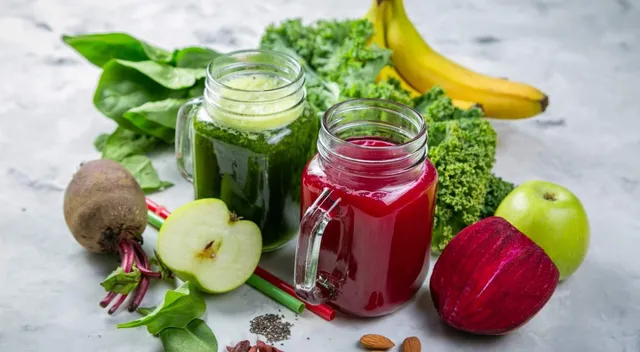Hot flashes, which are frequently linked to menopause, can cause discomfort and disturbance in a woman’s life. However, did you know that just minor dietary adjustments can provide relief? 9 foods that fight hot flashes will be covered in this extensive guide, with an emphasis on 9 foods that fight hot flashes.
-
Flaxseeds: Organic Hormone Controllers
Rich in nutrients, flaxseeds can help balance hormones, which is one of the main causes of menopausal hot flashes. They contain a lot of lignans, a kind of phytoestrogen that has the ability to replicate the actions of estrogen in the body.
-
Soy Products: The Mimics of Oestrogen
Products made from soy, such as edamame, and tofu, are widely known for their ability to imitate estrogen. These plant-based substances can lessen the frequency and severity of hot flashes while also assisting with hormone balance.
-
Omega-3 Rich Fish: Relieving Cooling
Omega-3 fatty acids are abundant in fatty fish, such as mackerel and salmon, and they have anti-inflammatory qualities. Eating these fish can enhance general well-being and lessen the severity of hot flashes.
-
Whole Grains: Helping to Regulate Blood Sugar
Oats, brown rice, and quinoa are examples of whole grains that are great for regulating blood sugar levels. Because blood sugar fluctuations can cause hot flashes, healthy grains are a great supplement to any diet.
-
Leafy Greens: An Important Nutrient Burst
Nutrients such as vitamins, minerals, and antioxidants abound in dark, leafy greens like kale and spinach. They can lessen the frequency of hot flashes and help you control your body’s temperature.
-
Nuts and Seeds: Filling and Beneficial Snacks
Nuts and seeds are not only nutrient-dense snacks but also a good source of magnesium and vitamin E. During menopause, these minerals can help control hot flashes and enhance general comfort.
-
Herbs That Cool: Black Cohosh and Sage
Herbs like black cohosh and sage, though not exactly meals, have been used for millennia to treat menopausal symptoms like hot flashes. Find out how to make herbal drinks or include these herbs in your diet.
-
Steer clear of triggers: caffeine and spicy foods
Certain meals might also cause hot flashes. Learn whether meals and drinks are too hot or too caffeine-containing for you, as they can make your symptoms worse.
-
Hydration: Your best friend is water
Keeping enough water in your body is essential for controlling hot flashes. Discover the benefits of consuming adequate water and how it might lessen the frequency and intensity of your symptoms.
Conclusion
You don’t have to let hot flashes control your life during menopause. Hot flashes might be considerably less frequent and intense if you include these nine foods in your diet and adopt a few easy lifestyle adjustments. Although dietary modifications might have a significant impact, it’s important to keep in mind that every person’s experience is unique. Seek advice from a medical expert for a customized strategy to control hot flashes and enhance your general well-being.
FAQs
Q1. Is it possible to totally avoid heat flashes with diet?
A1: Although a balanced diet can help control hot flashes, it might not completely stop them. Numerous variables, including as heredity, lifestyle choices, and hormone fluctuations, can trigger hot flashes. Their frequency and severity can be greatly decreased with a balanced diet.
Q2: What is the duration required for dietary modifications to impact hot flashes?
A2: Individual differences exist in the amount of time it takes for dietary modifications to affect hot flashes. While some people might experience noticeable improvements in as little as a few weeks, others might need many months to see real progress. The secret to diet modifications is consistency.
Q3: I want to minimize heat flashes; are there any meals I should avoid specifically?
A3: Some people do have heat flushes after consuming particular foods. Common offenders include alcohol, caffeine, and spicy foods. Recognize your unique triggers and minimize your exposure to them.
Q4: Are these dietary adjustments beneficial for guys to control hot flashes?
A4: Hormonal imbalances can cause hot flashes in men as well, though they are more common in women going through menopause. Men may therefore benefit from these dietary adjustments as well.
Q5: Which is better for controlling hot flashes: dietary modifications or supplements?
A5: Changing one’s diet and taking supplements can help control hot flashes. Your dietary requirements and personal preferences will determine which option is best for you. Seek guidance from a medical practitioner for specific recommendations.
Q6: Could heat flashes indicate a more serious medical condition?
A6: Although they can be brought on by other medical issues, hot flashes are typically a normal aspect of menopause. It’s important to see a healthcare professional for a complete assessment if you are worried about your hot flashes or if they continue after menopause.



